[unable to retrieve full-text content]
Matthew McConaughey believes a word should be removed from dictionary NBC4 WCMH-TVImage

[unable to retrieve full-text content]
Matthew McConaughey believes a word should be removed from dictionary NBC4 WCMH-TVIf you’re looking to read more books from around the world, beginning with novellas in translation makes a lot of sense. For reasons I don’t fully understand, a lot of the fiction that gets translated into English is novella length. It may be that the novella is a more dominant form in other countries than it is in the U.S., or it may be that shorter books are easier to translate and therefore easier to publish. Either way, there are many wonderful novellas in translation to choose from.
Personally, I love reading novellas: they are long enough to create the feeling of immersion in a story, but not so long that I, as a slow reader, feel bogged down. They are also a great way to try out new authors and styles without a major investment of time. If you like what you find, you can search out other books by that author or in that style.
Also, if you fall in love with a particular novella in translation, you can seek out other work from that country or region. The books in the list below come from Mexico, Palestine, Japan, Argentina, Switzerland, France, Colombia, and South Korea. Reading one of these might inspire you to learn more about the literary culture and traditions of that place.
You might also find a new favorite author. I have read and loved the books in this list and have gone on to seek out other work by these writers. You might have the same experience!
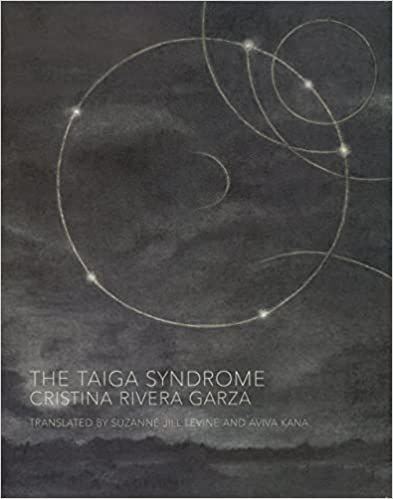
This novella mixes fairytales, detective fiction, travel writing, and theories of translation in a wild, eerily strange ride of a reading experience. An ex-detective gets tapped for a mission to find a lost couple. To complete her mission, she travels into the far north with a translator. As the two of them wander further into the forest, what they discover gets stranger and stranger. This is a great book for those who like strange reads that keep you on your toes and give you plenty of food for thought.
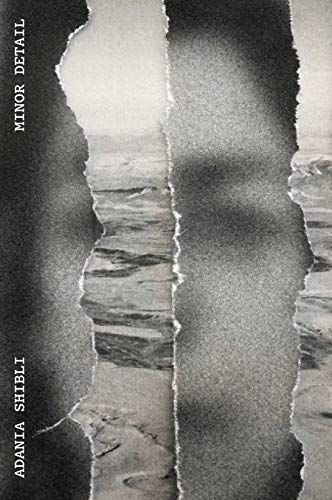
The first part of this novella is set in 1949. It tells the story of an Israeli officer who leads a group of soldiers on a mission to find and capture Palestinians in the Negev Desert. They capture and then brutalize and kill a Palestinian teenager. The second part describes a woman in Ramallah in the present day who becomes obsessed with this murder and begins to research it. The subject matter is dark and difficult, so be prepared for that. The book looks closely at violence, memory, and how the past shapes the present. Its two halves mirror each other in fascinating ways as well.
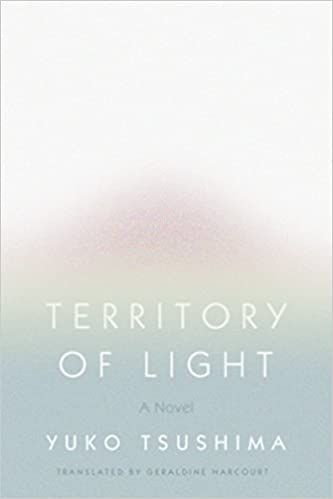
This novella tells the story of a woman in Tokyo setting up life in a new apartment with her 3-year-old daughter. She and her husband have recently separated. In a series of vignettes, Tsushima charts this woman’s high and low points. She feels isolated and exhausted, but also exhilarated with her new freedom. Mother and daughter bask in their apartment’s abundant light, but also struggle with adapting to change and meeting new challenges. The book is beautiful and meditative and also a sharp portrayal of what it takes to survive as a single mother in a world that offers mostly disapproval.
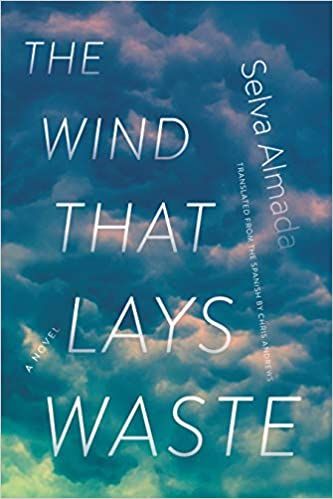
Two people, a preacher and his teenage daughter, find themselves stranded after their car breaks down. They are on a rural road in Argentina, and they get a ride to a mechanic who lives with a teenage boy. The Wind That Lays Waste tells about these four characters’ interactions throughout one day as the travelers wait for their car, and it also fills in their backstories. The characters spend a lot of time talking about God and religion, sharing ideas and experiences as a storm threatens on the horizon. It’s a beautiful novel that encourages thinking about matters of faith and meaning.
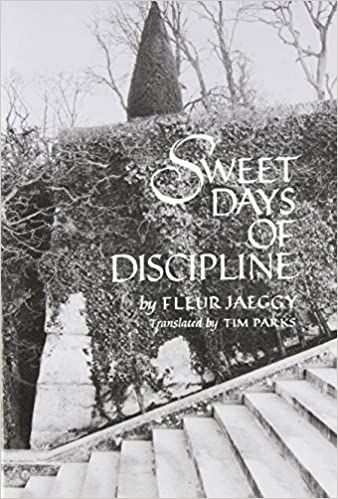
This novella from 1989 takes place in a Swiss boarding school. The 14-year-old protagonist finds herself fascinated by a new student on the scene, Fréderique. Friendships and alliances shift as Fréderique settles in. The book describes daily life at the school and the twists and turns of gossip and judgments. It’s a seemingly quiet story, but darkness is never far away. The novella is an unsettling exploration of the images the students project onto the world and the reality that lurks underneath.
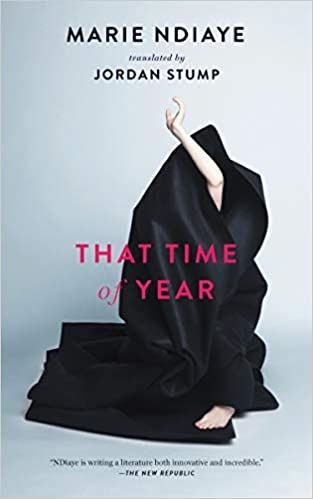
In this 1994 novella, Herman and his family overstay their summer vacation in the French countryside by one day. This shouldn’t be a big deal, but it is: the world they knew on August 31st is utterly transformed on September 1st. The weather turns rainy and cold and then Herman can’t find his wife and child. He heads into the village to search for them, but no one has answers and no one seems concerned. The villagers ignore him and officials can’t or won’t help. The story keeps getting more and more surreal. Fans of literary horror will particularly love this one.
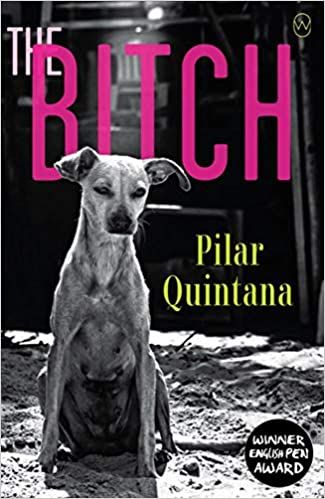
This novella tells the story of Damaris, a woman in her 40s who adopts a puppy to ease her loneliness and unhappiness with her husband. She thinks of the puppy as a substitute for the children she was never able to have. As the puppy grows and becomes aware of the wider world, however, it runs away, and its relationship with Damaris is never the same. The novella beautifully captures the eerie, wild coast of Colombia, which is near both the jungle and the ocean. Damaris’s combination of longing and hope is moving. Be prepared for scenes of animal cruelty if you pick this one up.
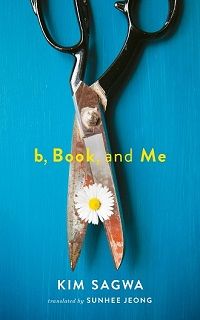
This novella tells the story of two best friends, Rang and b, left alone by their parents and ignored by their teachers. They are teenagers living in a South Korean city who struggle with poverty, loneliness, and bullying. Together, they dream of escape. But then Rang unintentionally betrays b by writing about her dying sister, and their friendship falls apart. We follow their stories as they work their way back toward each other. The novella captures how dark life can be for teenagers and how difficult it can be for them to find their way forward.
After reading this list of novellas in translation, you might be inspired to find even more books to check out. Book Riot has you covered! You can read this list of books in translation from 2022 and this list of 2021 translations. We also have a list of 50 must-read short books in translation. You can check out our translation archives as well.
:quality(70)/cloudfront-us-east-1.images.arcpublishing.com/cmg/4RVDJDREZFHKZNEKC762SXPXNM.jpg)
Matthew McConaughey – What you need to know Matthew McConaughey – What you need to know
Whether you believe him or not, Matthew McConaughey says he’s serious about his dislike of the word “unbelievable.”
>> Read more trending news
“It’s my least favorite word,” McConaughey said in a video posted to Twitter. “I think we should wipe it out of the dictionary. …It happens every single day. We shouldn’t think that the most beautiful sunset or that the greatest play or the greatest love of our life or the greatest moment of euphoria is ‘unbelievable.’ Believe it! It’s happening.”
But not just in the positive sense, McConaughey extends his belief to tragedy and natural disasters as well, saying, “It’s part of life too. Believe it. We see it happen every day. So, ‘unbelievable,’ I don’t buy. Awesome. Horrible. Incredible. I believe those. That’s a good way to explain things. But ‘unbelievable?’ Nah. It just happened. Believe it.”
Merriam-Webster’s dictionary defines “unbelievable” as “too improbable for belief” and also “of such a superlative degree as to be hard to believe.”
Merriam-Webster responded to McConaughey’s tweet with its own, saying simply, “no.”
This is not the first time the actor has expressed contempt for the word. During his commencement address at the University of Houston in 2015, McConaughey made the same point, KXAN reported.
©2022 Cox Media Group
:quality(70)/cloudfront-us-east-1.images.arcpublishing.com/cmg/4RVDJDREZFHKZNEKC762SXPXNM.jpg)
Matthew McConaughey – What you need to know Matthew McConaughey – What you need to know
Whether you believe him or not, Matthew McConaughey says he’s serious about his dislike of the word “unbelievable.”
>> Read more trending news
“It’s my least favorite word,” McConaughey said in a video posted to Twitter. “I think we should wipe it out of the dictionary. …It happens every single day. We shouldn’t think that the most beautiful sunset or that the greatest play or the greatest love of our life or the greatest moment of euphoria is ‘unbelievable.’ Believe it! It’s happening.”
But not just in the positive sense, McConaughey extends his belief to tragedy and natural disasters as well, saying, “It’s part of life too. Believe it. We see it happen every day. So, ‘unbelievable,’ I don’t buy. Awesome. Horrible. Incredible. I believe those. That’s a good way to explain things. But ‘unbelievable?’ Nah. It just happened. Believe it.”
Merriam-Webster’s dictionary defines “unbelievable” as “too improbable for belief” and also “of such a superlative degree as to be hard to believe.”
Merriam-Webster responded to McConaughey’s tweet with its own, saying simply, “no.”
This is not the first time the actor has expressed contempt for the word. During his commencement address at the University of Houston in 2015, McConaughey made the same point, KXAN reported.
©2022 Cox Media Group
In early May, the Translation Center’s assistant director Lara Matta hosted celebrations to honor 75 bilingual school staff who completed two different workshop series to improve language access services in schools. Thanks to the support of the Massachusetts Department of Elementary and Secondary Education (DESE), this opportunity was made available to staff from 26 districts, representing 16 languages: Arabic, Cantonese, Cape Verdean, English, French, Haitian Creole, Khmer, Kiche, Mandarin, Portuguese, Russian, Somali, Spanish, Swahili, Twi and Vietnamese.
Image

In the Interpreter and Translator in Education Workshop Series (WS1), participants learn about the standards and procedures of interpreting and translation in addition to the larger context of language access in schools. The Translation Center awarded 54 certificates of completion. Another certificate celebration honored 21 participants who completed the Interpreting for Special Education Workshop Series (ISE), which prepares bilingual school staff to interpret in special education settings.
The May celebrations continue the Translation Center’s previous work with bilingual school staff. In March, the Translation Center awarded certificates of completion to 45 WS1 participants and 20 ISE participants from 23 districts, representing eight languages. During the event, the invited speaker Jennifer Love, Supervisor of Language Access and Engagement for Prince George’s County Public Schools, reminded the group to “..., continue to be a visionary, in the same spirit in which you were drawn to this program …, it is not enough to know that you’re going somewhere, but always keep in the forefront– what will you do when you get there?”
The workshops are led by faculty and language access professionals. The Translation Center hires graduate students to support workshop leaders and participants offering them practical experience in one of the wealthiest and fastest-growing industries in the world. Their participation also gives them exposure to non-academic career paths, a noteworthy experience given the lack of academic departments of translation and interpretation at U.S. universities. Staff and language experts from the deep roster of translators and interpreters at the Translation Center also support the workshops.
Regina Galasso, director of the Translation Center and associate professor in the Spanish and Portuguese Studies Program, is the designer of the structure of the workshop series in consultation with DESE, school staff, and individuals with experience leading language access services in schools. Her vision is inspired by the plurality of the workshop participants, who come together from different districts, positions, languages, backgrounds, and experiences. In most cases, each workshop in a series has a different leader to highlight the range of execution and articulation of translation and interpretation, thus inviting participants to build confidence to bring their own style to the practice while upholding professional standards and ethics. She also insists on the use of the term workshop to honor the participants’ contributions since many have already been providing these language services with little formal training. There is currently no certification for school interpreters as there is for medical and legal interpreters.
Galasso is grateful to Stephen Zrike, who first approached the Translation Center in 2018 while receiver/superintendent of Holyoke Public Schools, to develop a series for the district. Zrike continues to dialogue with Galasso about initiatives to improve language access in schools as the current superintendent of Salem Public Schools.
To date, the Translation Center has awarded certificates to about 400 individuals who participated in DESE-sponsored or district-specific workshop series and looks forward to future collaborations with schools near and far. Since not every school district is the same, the Translation Center works to understand each district’s profile when designing a workshop series. The workshops are one example of the language access support services that the Translation Center offers to schools.

The latest offering from Google’s parent company Alphabet comes 10 years after its first eyewear product
Google has unveiled a new product at its I/O developer conference this month; a level up from its Google Glass automated eyewear that was launched a decade ago. Instead of acting like a wearable computer, Alphabet Inc’s new augmented reality (AR) glasses can automatically translate speech in real time.
Harnessing Google Translate, the glasses can listen to speech in different languages, or detect American Sign Language, and project a translation in front of a user’s eyes – like real-time subtitling. Not only could this be applied to people wishing to speak to someone from another country, but it could also prove a valuable tool to deaf or hard-of-hearing users in cases where they do not or cannot wear hearing aids.
While the glasses remain in the prototype phase, and the company hasn’t provided any information on when it may be ready for commercialization, it is nonetheless expected to provide an indication of where the AR device market is heading.
Alphabet’s first foray into Google glasses encountered some backlash, with the integrated camera causing privacy concerns and the high price causing some consumers to balk. Details on the new translation glasses remain sparse, and it is unclear how the company has changed its approach since its first automated glasses product, though in design alone they mark a departure; shifting from a more sci-fi look to traditional glasses.
The new device was one of many products unveiled by Alphabet at the conference, all of which reportedly have the intention of more holistically connecting Google services with real-world activities using AI.
MARY LOUISE KELLY, HOST:
The writer Jhumpa Lahiri is known for her stories about the immigrant experience, books like "Interpreter Of Maladies" and "The Namesake," rich fictional stories from and of two worlds. Lahiri is less known for the other kind of writing she does - translation. For the last several years, the author and Princeton professor has been translating works from Italian to English, including her own work. And in a new essay collection titled "Translating Myself And Others," Lahiri explores what draws her to translation. She joins me now. Jhumpa Lahiri, welcome back to ALL THINGS CONSIDERED. I'm glad to speak with you again.
JHUMPA LAHIRI: Thank you so much.
KELLY: Clear the air, if you would, on something that I gather annoys you, which is the notion that translation is somehow a lesser form of writing than creative writing.
LAHIRI: Yes. It annoys me because what I've come to realize is that translation is nothing but a form of writing. If anything, it's more of a pure form of writing, if you will, because it's language that is at the center of every choice that's being made. And there's so much creativity and imagination that goes into arriving at the best solution from the translator's point of view.
KELLY: Although, take on the critics who will be listening and saying, but hold on, it's - there's got to be less creativity, less imagination involved. You can't just change the story whole cloth if you're trying to be truthful to the original.
LAHIRI: Well, that is sort of another layer, if you will, another dimension of what a text is, right? I mean, it has the - if we're talking about fiction, we're talking about the characters, the plot, the details. The choices that the author makes is governed by language, right? So language is actually at the center of the text and translation is making that extremely clear.
KELLY: It's kind of like the words are all you've got, which is true of writing in any event. But other choices melt away. And it's just - you're just wrestling with the language, pure and simple. Is that something close to it?
LAHIRI: Yes, it is. And I would say that when you're just wrestling, just, I would say, you know...
KELLY: There's a lot in that just, yeah.
LAHIRI: Yes, there's a lot in that just, but when we're wrestling with language, we realize how infinite the playing field is.
KELLY: I mean, I can hear both that you enjoy it and that it's hard, that it's demanding. And having done some translation myself, that has certainly been my experience. Do you find it makes you a better writer in both languages that you're grappling with?
LAHIRI: Absolutely. Absolutely. I think that my experience translating Italian literature made me a better writer in Italian because it exposed me to ways of constructing sentences, words, rhythms, turns of phrase, what have you that I was only getting by virtue of translating amazing authors such as Domenico Starnone or Calvino or whomever. Translation embeds you inside of the text, and so you also learn things about all of these other aspects of fiction writing.
KELLY: So I want to apply all this to your novel, "Whereabouts," which I got to interview you about when it came out last year, when it came out in English, I should say, because you wrote it in Italian. The Italian title was "Dove Mi Trovo." And then you translated it from Italian into English, which I know you were really resisting. Why?
LAHIRI: Well, I resisted it many years ago when my first Italian book came out, in other words, in English, because in that moment, I felt that I had to remain absolutely disciplined inside of English and sort of create the false notion that I only had one language, which, of course I didn't and I never have. But I wanted all of the energy I had to remain inside of thinking, reading and writing in Italian. By the time I wrote "Dove Mi Trovo," my relationship to Italian had changed. You know, the roots were deeper. I trusted it more. And I felt that working in English was not going to somehow unravel the Italian that I was building and cultivating in my system, in my brain, in my life.
KELLY: So you now have the original Italian. You have the work that you have translated that is in English that I read. You've now gone back and made changes - what? - an updated Italian version. Does it like three separate books? How do you think of it?
LAHIRI: They were very subtle changes, but they are there, so I don't think of it as a different book at all. But I do think of it as a, you know, that it went through another round of - in the edit cycle. And I think what translating myself opened up was the fact that - and I feel this very keenly now with my new book, which I've just finished in Italian - that self-translation is now for me the most rigorous and effective form of editing.
KELLY: Well, and I suppose it circles us back to where we began, which is your strong view that the act of translation makes you a better writer of fiction. You know, to go back to "Whereabouts," you're on version three of self-editing, and you feel like it's getting better. It's helping it.
LAHIRI: Yes, exactly. I mean, it's just constantly moving it toward the book you want it to be. It's very heady stuff, you know. I mean, but it's also destabilizing because, you know, one would like to think, OK, I wrote the book. It's done. It's out. It's in the bookstore. It's done. Let's forget about it. But that's kind of a myth in a way, you know. I mean, of course, we can always go back, and we can always question why we structured a sentence a certain way, why we chose one adjective as opposed to another. You know, and I think that self-translation insists on the fact that writing is really very open-ended. And what I think is really wonderful about the art and craft of translation is that it calls for other translations. And, I mean, every time someone translates something, it's almost like an invitation or even a challenge to say, you, too, could translate this. Let's see what you could do with this. There's simply no such thing as a definitive translation.
KELLY: I love that way of thinking about it. Well, may I wish you many more translations of this book and your others - that would be perfect - by the time you're on version 17?
LAHIRI: Thank you. Yeah. It's a hall of mirrors. But it's a new way of thinking about the literary enterprise, it really is.
KELLY: Well, Jhumpa Lahiri, this has been yet again a pleasure. Thanks so much for talking to us.
LAHIRI: It was my pleasure. Thank you for having me.
KELLY: That is the author and translator Jhumpa Lahiri. Her new essay collection is "Translating Myself And Others." Transcript provided by NPR, Copyright NPR.